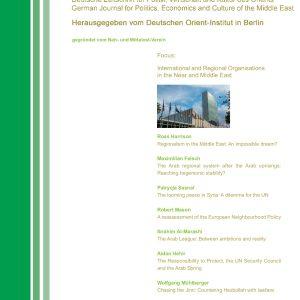Description
One of the major factors inhibiting regionalisation in the Middle East is the absence of political will to cooperate on the part of leaders. While the attributes of the leaders of the major regional powers, namely Iran, Saudi Arabia and Turkey, are undoubtedly important in determining their propensity to support regionalisation, there are even more important systemic factors that cause the most enlightened individual to eschew regional integration. A legitimacy crisis plagues most countries in the region, turning them inward rather than towards the region. The civil wars in Syria, Iraq, and Yemen have become conflict traps that have drawn in all the major regional powers, pitting them against each other and away from a stance of cooperation. And rather than having a stabilizing effect on the Middle East, the United States and Russia have reinforced the region’s fault lines, pushing it further away from integration. While mitigating these dynamics does not ensure success in sparking regionalisation, it improves the probability that a window to a better future will ultimately open.
Ross Harrison is on the faculties of the School of Foreign Service at Georgetown University and the University of Pittsburgh, and is a scholar at the Middle East Institute in Washington, D.C. Harrison is the author of Strategic Thinking in 3D: A Guide for National Security, Foreign Policy and Business Professionals, which is a required text at the National War College in Washington, D.C., and the co-editor of From Chaos to Cooperation: Toward Regional Order in the Middle East.




Reviews
There are no reviews yet.